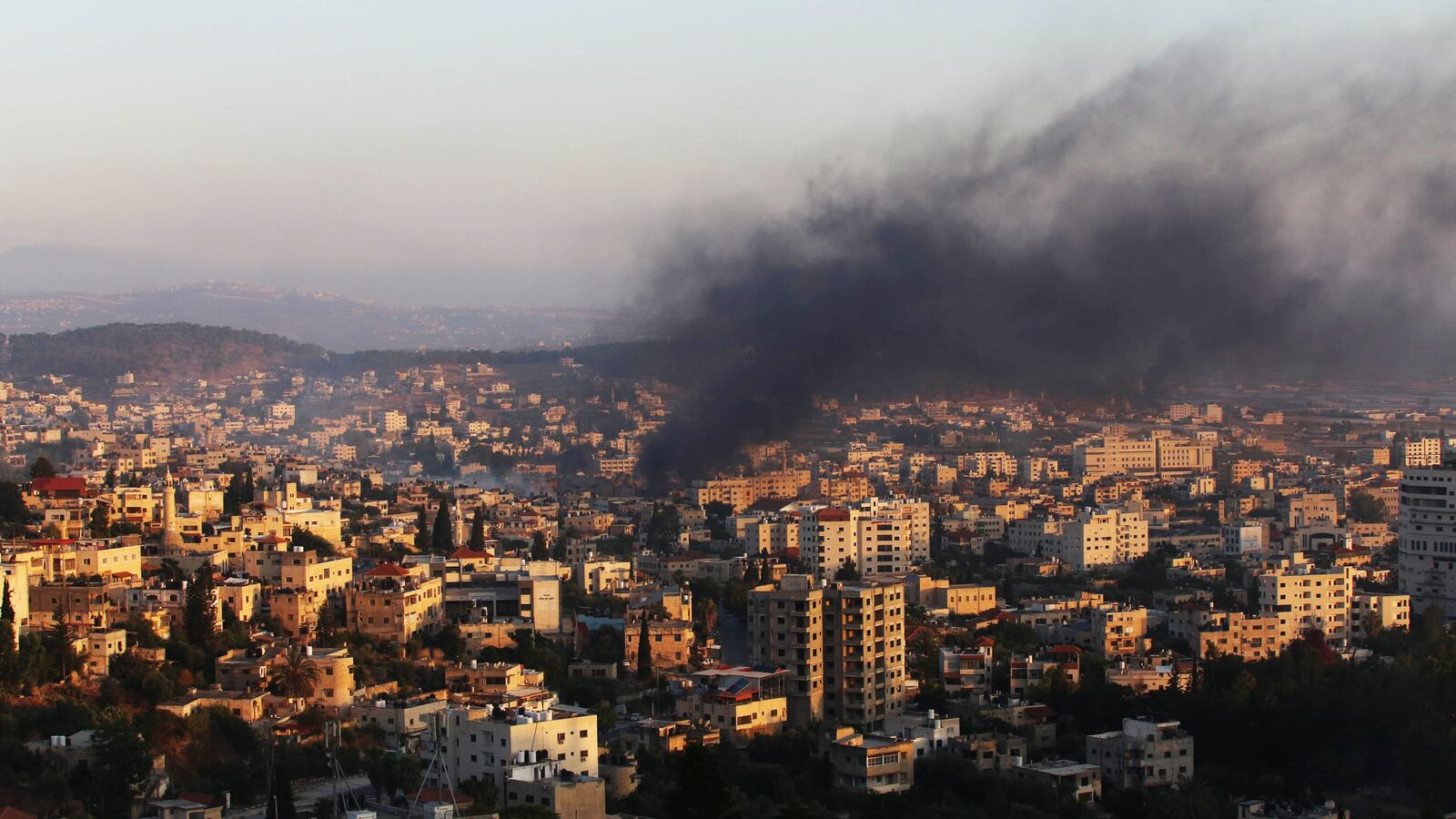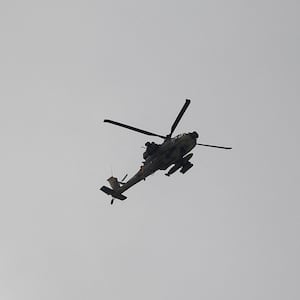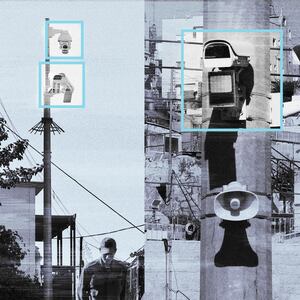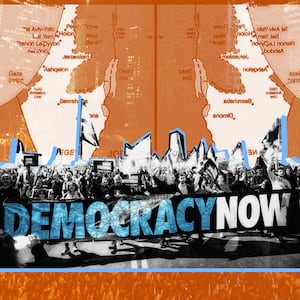The last few weeks in the occupied Palestinian territories have been marked by some of the most extreme violence we’ve seen in recent times.
This current wave started on Sunday June 18, when the Israeli government removed many of the existing bureaucratic obstacles for authorizing the construction of new settlements and gave most of the power of approval to Finance Minister Bezalel Smotrich–a renowned racist and leader of the settler movement.
The week continued with a massive military raid in the city of Jenin, where Israel Defense Force (IDF) troops met significant Palestinian armed resistance and six Palestinians were killed, including two teenagers, and dozens more were injured. The raid included, for the first time since the Second Intifada, combat helicopters shooting live fire on a Palestinian city.
The following Tuesday, two Palestinian gunmen attacked a settler gas station and restaurant, next to the entrance of the settlement of Eli, killing four and injuring four more. And on Wednesday, hundreds of settlers raided Palestinian villages in the north of the West Bank, most prominently Turmus Aya, torching vehicles and homes. During the raid one Palestinian, Omar Qateen, was shot dead by Israeli forces.

Israeli military armoured vehicles advance on a road during an operation in Jenin city in the occupied West Bank, on July 3, 2023.
Ronaldo Schemidt/AFP via Getty ImagesThe blood-soaked week concluded with another settler attack in the village of Umm Safa, north of Ramallah, on Saturday, where settlers again attacked people and property with raging violence. This and other settler violent raids were called, even by military officials, “pogroms.”
As I write these words, the Israeli army is in the middle of a major incursion into the city of Jenin, the biggest operation of its kind in the West Bank since the Second Intifada two decades ago. At the same time as thousands of Palestinians flee their homes in the Jenin refugee camp, settlers have been documented attacking the nearby village of Burqa—exploiting the chaos while it lasts, to advance their interests.
None of these settler attacks were isolated incidents; they take place in a context of legitimization and support for increased violence by the Israeli government. Settler pogroms like the ones we’ve seen in recent weeks, or in Huwara in February, are not only the fault of the law-breaking militia. The buck stops with successive Israeli governments, which for decades have been silent about this violence in various ways and done nothing to stop it, effectively supporting its continuation and escalation.
Settler violence didn’t start last month. It began with the genesis of the settlement project, from the moment that Israel legitimized the construction of the first settlements on Palestinian land.
A settlement is not only a village or a town with Israelis living in it. It’s an ecosystem of violence. It’s a pebble thrown into a pond, creating a ripple effect of violence over all the Palestinians in the area.
A new settlement means the introduction of ideological settlers who want to expand Israeli sovereignty; it means construction of segregated roads and other infrastructure on Palestinian agricultural land; it means more soldiers with more weapons patrolling the perimeter; and it also means in many cases, violent measures used by the military in response to any Palestinian resistance to the theft of their land, violent or non-violent, that may arise.
The settler enterprise is born from and maintained by violation of the law. Most of this illegal activity, since the occupation began in 1967, is supported and sometimes even funded by Israel.

Injured Palestinians are brought to the emergency as at least 9 Palestinians are killed 50 others injured after Israeli Forces conducted airstrikes and raid in the city of Jenin, West Bank on July 03, 2023.
Issam Rimawi/Anadolu Agency via Getty ImagesAfter the killing of four Israelis next to the settlement of Eli in June, the Israeli government tacitly approved the construction of seven illegal outposts (unauthorized settlements which are built against Israeli law).
The settlers, who already wielded a large amount of political power, and now constitute the decision-makers in government, are permitted to break the law and build without limitation. They believe that they are above the law when it comes to assault, theft, and arson, and in many ways they are correct.

Israeli Prime Minister Benjamin Netanyahu (L) greets Finance Minister Bezalel Smotrich, during a media briefing ahead of a vote on the national budget, on May 23, 2023, at the parliament in Jerusalem.
Gil Cohen-Magen/AFP via Getty ImagesWhen Israel decides to give Smotrich, an extremist and violent settler, the power over approving new settlement construction, not only does it change the reality on the ground but, perhaps equally significantly, it sends a message to the settlers: “What you are doing is working. Instead of enforcing the law on you, and protecting Palestinian rights—as is Israel’s obligation under international law—we will respond to your violence by facilitating your expansion.”
This is a governmental policy, and it is carried out on the ground at the scene of near-constant settler violence.
That message is sent both implicitly, through the actions of the government and the military, and explicitly, in the words of the ministers who are in a position to manifest their dangerous worldview in reality. What was once considered too radical to say out loud is now tweeted or announced on almost a daily basis by key decision-makers.

Israeli minister of National Security Itamar Ben-Gvir surrounded by body guards at Damascus gate In Jerusalem during the flag march.
Eyal Warshavsky/SOPA Images/LightRocket via Getty Images“We have to settle the land of Israel and at the same time need to launch a military campaign, blow up buildings, kill terrorists,” National Security Minister Itamar Ben-Gvir, a violent settler himself, said on a visit to the unauthorized outpost of Evyatar on June 23, at the height of the latest round of pogroms. “Not one, or two, but dozens, hundreds, or if needed, thousands,” he added.
Orit Strook, minister for national missions, attacked the joint statement made by the military chief of staff, the chief of police, and the head of the Shin Bet security service which referred to the violence as “nationalist terror.”
“Who do you think you are, the Wagner Force?” Strook said in an interview.
Tally Gotliv, a fellow lawmaker from the ruling Likud party, took to Twitter to state that “killing terrorists is not enough… The terrorists don’t work alone. The only thing they understand is force!... A place where terrorists come from—that whole place must pay. Collective punishment. It’s the only way!”
Blatant incitement has become a regular part of the political discourse in Israel.
As soldiers who served in the IDF, we in Breaking the Silence know all too well how all of this reaches the actual orders we receive, or more accurately, don’t receive.
While it is Israel’s obligation under international law to protect all civilians in the occupied territories, in hundreds of soldiers’ testimonies about this phenomenon that we collected, they describe how they are basically given no tools or concrete orders about how to deal with settler violence, and how the system allows it and turns a blind eye to it.
This was also the case in the Huwara pogrom in February, where dozens of soldiers were present on duty and did virtually nothing to stop it. Shortly after, one of these soldiers reached out to Breaking the Silence, to share his testimony. “We just let them continue to advance,” he told us in the interview, referring to the settlers who carried out the Huwara pogrom. He explained how the military didn’t attempt to mitigate the destruction, even when fire trucks which could have prevented some of the damage were attacked by the settlers.
Over the years, various Israeli governments have used strong language to condemn settler violence. There was even a committee set up by Israel during the 1980s to investigate the phenomenon. The violence was also condemned time and again by the international community. But the sad truth is that when push comes to shove, Israel almost never does anything to stop it.
With one government decision, an order could be given to soldiers to arrest violent settlers, and the effect would transform the rates of violence and convictions of perpetrators. This act will not end the military occupation, but it would be a massive blow to the process of settlement expansion and land theft from Palestinians—and might put both Palestinians and Israelis on a better trajectory.
Unfortunately, Israel’s leaders wake up every single morning and decide to let this violent destruction continue to multiply. They pay lip service to denouncing the violence which, in reality, acts as an integral part of occupation and settlement expansion. We know this, as former soldiers who were ordered to enforce the law exclusively on Palestinians.
Palestinians know it all too well, from the price they pay in life and limb.
As anti-occupation activists, we’re frequently asked what can be done. Ending the ecosystem of violence fueled by settler terror is a practical, concrete, and direct step in the right direction, and many lives depend on it. It’s time for actions, not words.










